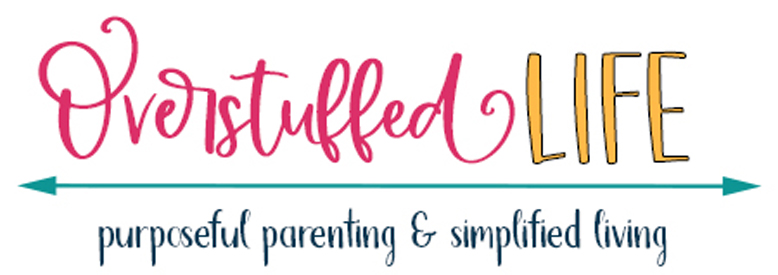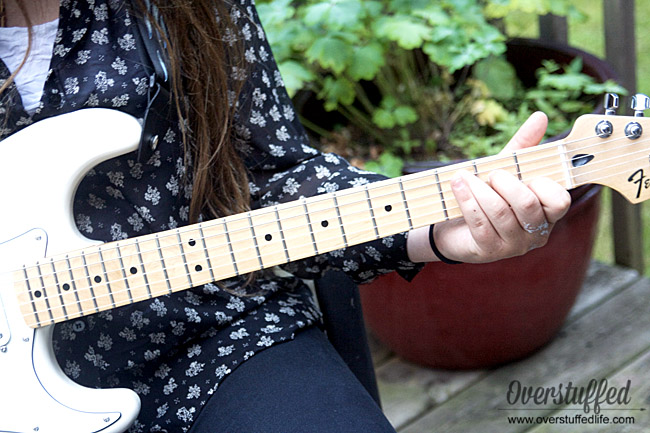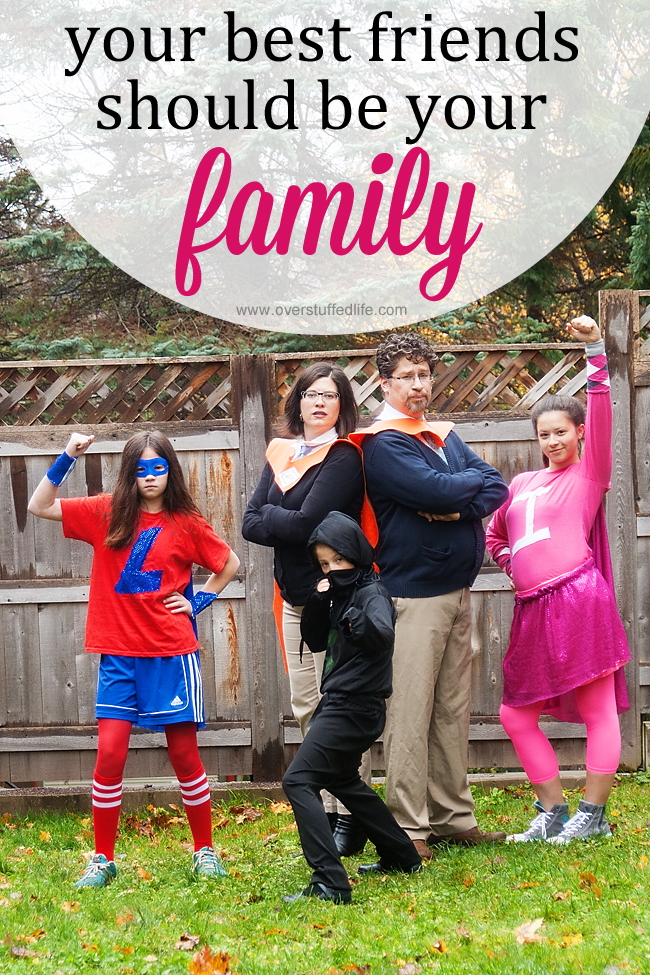5 Life Lessons I Want My Children to Learn From Politics
What are we teaching children by the way behave on social media over politics?

Edit November 3, 2020: I wrote this a few days after the 2016 presidential election. Tonight we wait for the results of the 2020 election and the division in our country leading up to this day is astronomical. I still stand by the things I wrote four years ago and I truly hope my children are learning these lessons.
The 2016 Presidential Election is finally over—Donald J. Trump will be the next president of the United States of America. The Maestro and I were completely stunned as we watched the returns come in on Tuesday night, as I know so many Americans were. Based on the polls, Hillary Clinton had been sure to win, and nobody expected this upset to happen!
Presidential elections in this country are a long and arduous process. Over a year before the election people begin to campaign, money is raised, debates are held, candidates drop out, primary elections choose the party nominees, more debates are held, phone calls are made, commercials and signs are everywhere—America is understandably heavily involved in the outcome. But man, I was so tired of it all.
I was less tired of the actual political process than I was of the Facebook political process. After watching my feed for the last year become more and more political while simultaneously becoming less and less civil, I knew what a Trump win would mean. I’m not talking about politics, either.
Regardless of how you voted, what your political beliefs are, or what you think of the outcome, you know as well as I do that Facebook feeds everywhere are blowing up with personal attacks, angry soliloquies, and even racially charged language as people deal with the aftermath of what has been the worst election cycle I have witnessed in my 42 years of life.
I thought it was bad before the election, and I was naive enough to think it might calm down afterward. But it hasn’t, and all of it makes me feel pretty defeated.
This is not the America I want my children to grow up in.
I want my children to grow up in an America where politics does not ruin relationships, where disagreements do not turn quickly into personal attacks and insults, and where kindness and empathy rule the day.
Before you say that it isn’t all bad: I know it isn’t.
My Facebook feed has also had some really lovely posts that promise hope and compromise and understanding. I appreciate those who are willing to work for understanding instead of assumption and those who are able to express their views in a way that is civil and kind.

Mostly, I’ve been thinking of my three daughters and the possible lessons they may have learned from this election process. Children learn by example, and I’m not so sure some of the examples they have witnessed this past year have taught them lessons I would like them to learn.
As a parent it is my job to take this whole mess and teach them the lessons I want them to learn, so that is what I am doing. Interestingly enough, even though these life lessons are being learned via politics, they are not political lessons—they are lessons of character.
Life Lessons I Want My Children to Learn From the Presidential Election
1. Win humbly and lose gracefully
It’s important to me that my children understand that you can’t win all the time. I know it’s tough to lose—I really hate losing—but teaching our children to be a good sport when they lose helps them to handle bigger failures throughout their lives. Children need to understand that winning is not the most important thing.
I have observed my children try to cheat at board games because they want so badly to win. I have also observed them trying to blame others for cheating or making other silly excuses when they lose because they don’t want to feel like a failure—even if we were just playing CandyLand! This is human nature.
Teach them to lose gracefully. Help them to understand that nothing is more important than the way we treat others. Help them to see that it’s okay to recognize that other people sometimes do a better job than we do and to use it as motivation to try harder the next time.
On the flip side, children also need to learn how to win humbly. It’s in bad form to win and then turn to the loser and say “nana nana boo boo” while sticking out your tongue—more human nature, right? Winning humbly doesn’t mean you can’t be happy, but it does mean not rubbing it in your opponent’s face.
2. There is a real human on the other side of that screen
With all of the technology that our children are exposed to in today’s world, it’s easy for them to forget that there are real people with real feelings on the other side of their screens. Cyber bullying is very real—one of my daughters has experienced this type of bullying—and it can ruin lives.
Last year, my youngest daughter was watching YouTube videos and left a not-so-kind comment on one of them. She thought she was just being witty and didn’t even think about the fact that someone’s feelings might be hurt because of her words. When I found the comment, I deleted it and then spoke to her about it. It only took her a few seconds to realize what she had done, and she was so devastated about it that she broke down sobbing. I almost felt bad for bringing it up, but she has never made that mistake again. In fact, I recently came across another comment she had made on YouTube and this one was in reply to a bully. I loved what she said, “You could have made that comment in your head—they worked really hard on this video!“
Teach your children to make their unkind comments in their heads and that if they don’t have something nice to type, to type nothing at all. Be an example of this yourselves—walk away from heated conversations online instead of typing a comment you may come to regret. Don’t lose friends over political or other types of disagreements—it’s not worth it. The golden rule is not dead.
3. Listen to those who disagree with you
I have seen far too many Facebook conversations devolve into name calling and pronouncements of some very harsh judgments. I want my children to understand that just because someone has a different viewpoint, it does not make that person bad or evil or stupid or uneducated. It just means they have a different opinion.
We have different opinions because we have different experiences, and when we choose to listen to each other instead of yell, we might begin to see the other side. Understanding the other side does not always mean you have to change your own opinion, but it does mean trying hard to walk in someone else’s shoes and get a little information about why they might feel the way that they do. I love it when people have civil conversations and are able to end them with the agreement to disagree and a little bit of understanding about the other side of things.
Siblings argue a lot, and sometimes this same type of name-calling and harsh judgment ensues. Use those normal moments of sibling rivalry to teach your children how to calmly present their side of the story. Then teach them how to listen to the other side without interruption, without blame, and without thinking of a good rebuttal. Teach them that if they still can’t agree or compromise that it’s okay to disagree—nobody agrees on everything, after all! Teach them that everyone has different experiences that make up their beliefs and opinions, and help them to be respectful of the many different viewpoints they will come across while still being able to stand up for their own beliefs in a kind and civil way.
I loved this article about learning to listen to the other side: What a Gay, Muslim, Pakastani-American Immigrant Learned Traveling to Rural Alaska the Week Before the Election
4. Kindness matters
If I teach my children nothing else, I hope that I teach them to be kind. We talk about kindness a lot at our house and that kindness is a conscious choice we make. I know from personal experience that it isn’t always easy to be kind, and I’ve certainly had plenty of moments where I didn’t choose kindness. But I always, always, always regret those moments.
Teach your children that it is okay to be firm in their beliefs and kind at the same time. I watched yesterday as one of my friends stayed firm in her belief and kind in the face of some pretty horrible accusations. Ultimately, the other person publicly unfriended her and my friend simply said, “I’m sorry you feel that way—I hope you have a nice day.”
That’s all we need to do. When someone is looking for a fight, it isn’t really worth it to battle it out. Teach your children to kindly state their belief and walk away if necessary—while wishing their opposition a nice day in the process. Teach them to always take the higher road, as hard as it can be to do. In the end, they will not regret it.
One of my favorite quotes is from the children’s book Wonder. It says, “When given the choice between being right or being kind, choose kind.“
Related: The Death of a Gorilla and the Lesson We Aren’t Learning
5. True change begins with us.
Like most children, my kids often want the people around them to change (usually their sisters). I am constantly reminding them that the only person they are responsible for and can control is themselves.
We have so much power to change the world, but it doesn’t start with changing others’ political opinions or religious beliefs or their favorite TV show. It begins with changing ourselves.
Teach your children to use their own sphere of influence for good. To be kind. To listen. To be respectful. To serve those who are less fortunate. To serve those who are more fortunate. To stand up to bullies. To love others. To see a need and fill it. To recognize that the world is so much bigger than they are. To know that they can change the world for good by being the good in the world.
These are the things I want my children to learn from the things they have seen during this election. I want them to know that America isn’t great because of which President is in office—America is great because of the people in it. And the people—our children!— can make America even greater by seeking to understand one another with kindness and love.
Related: On Choosing Kind

This post may contain affiliate links, for more information, please see my disclosure.



